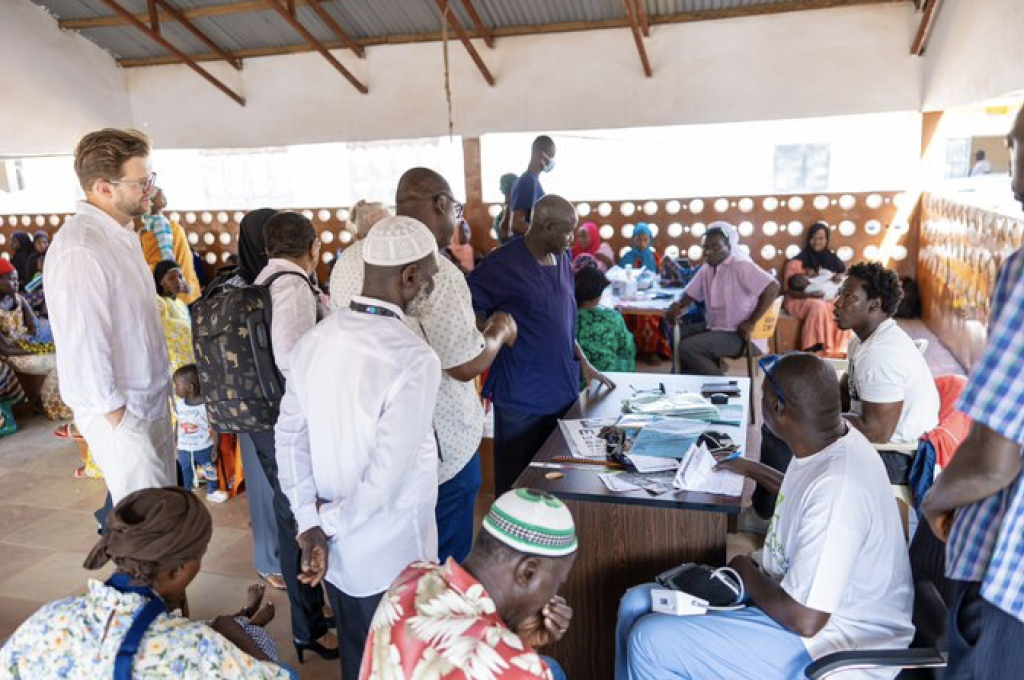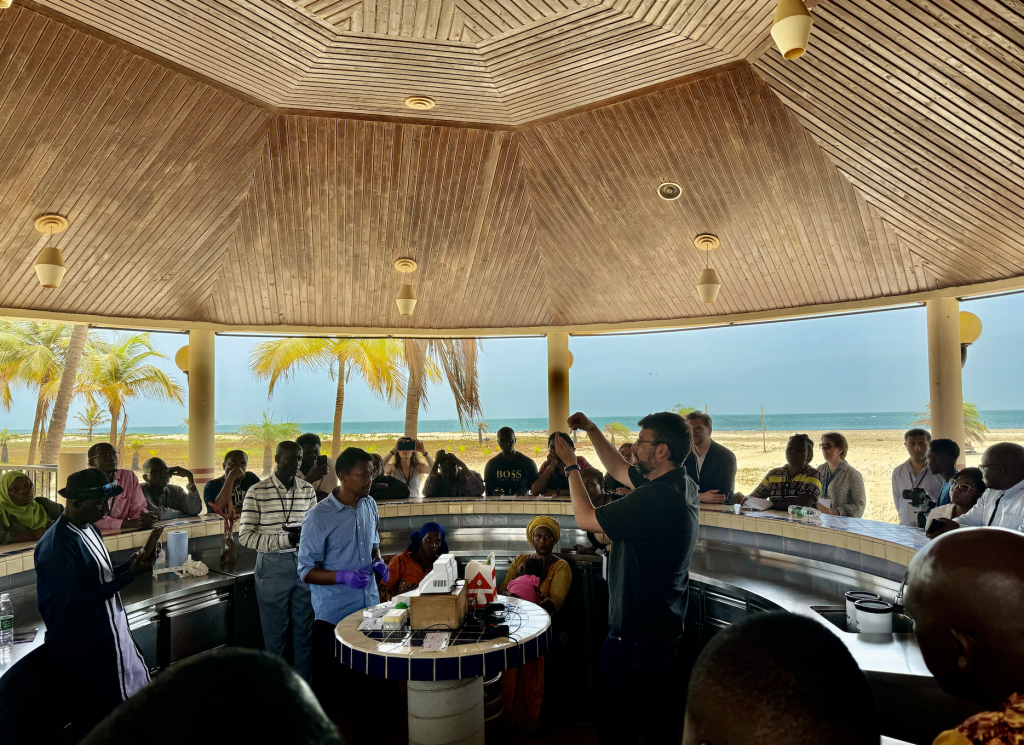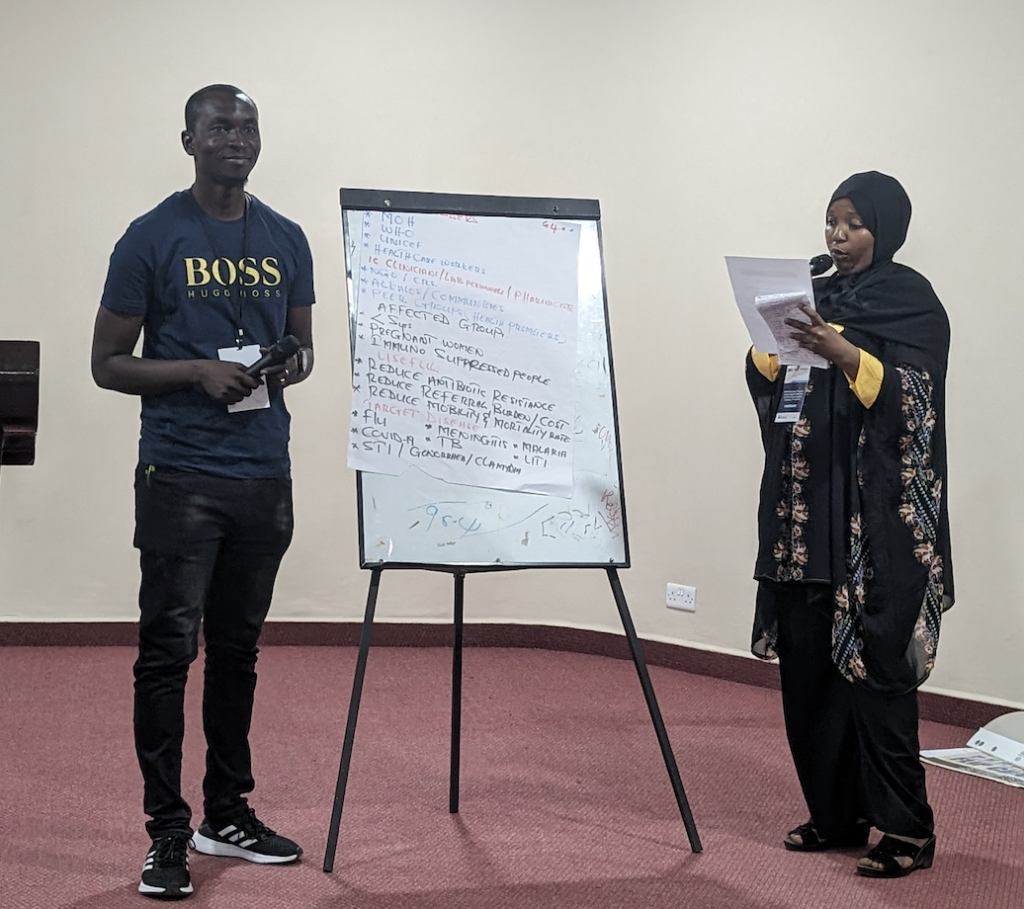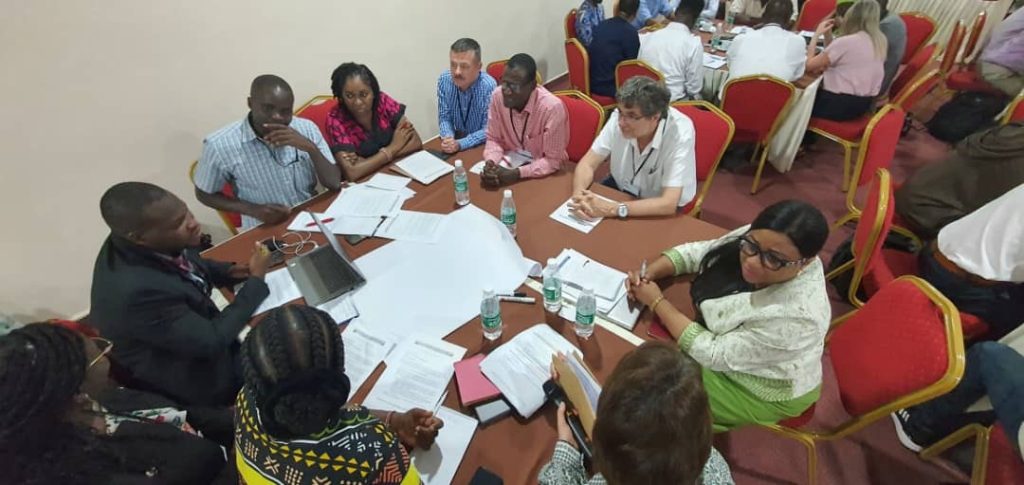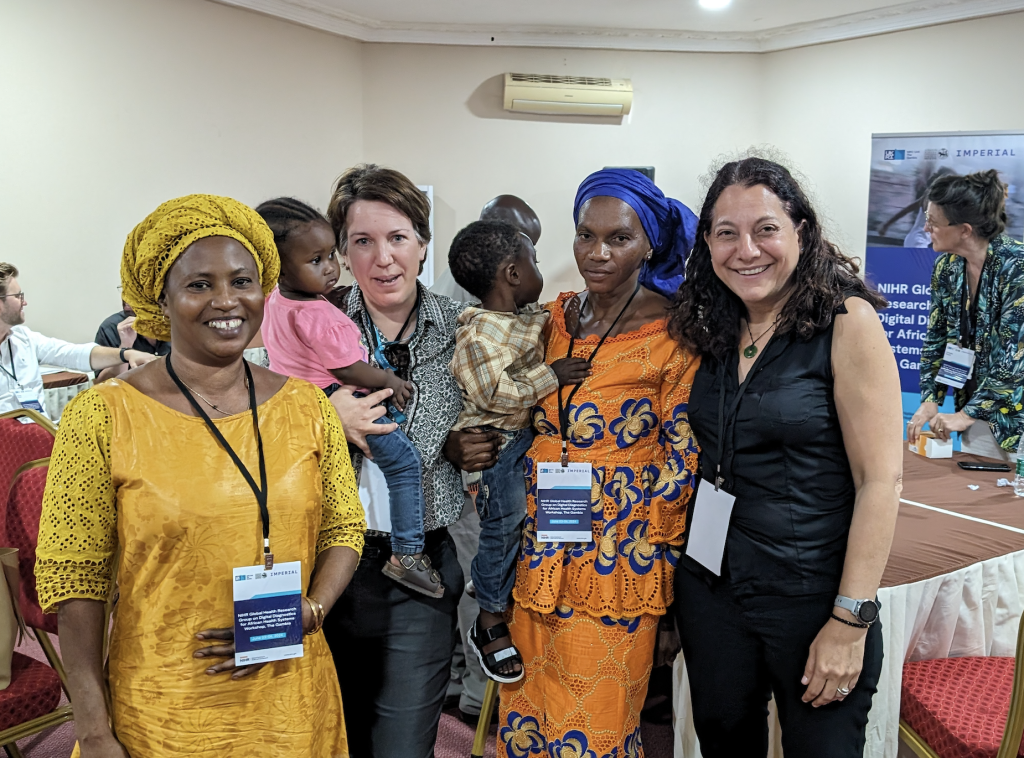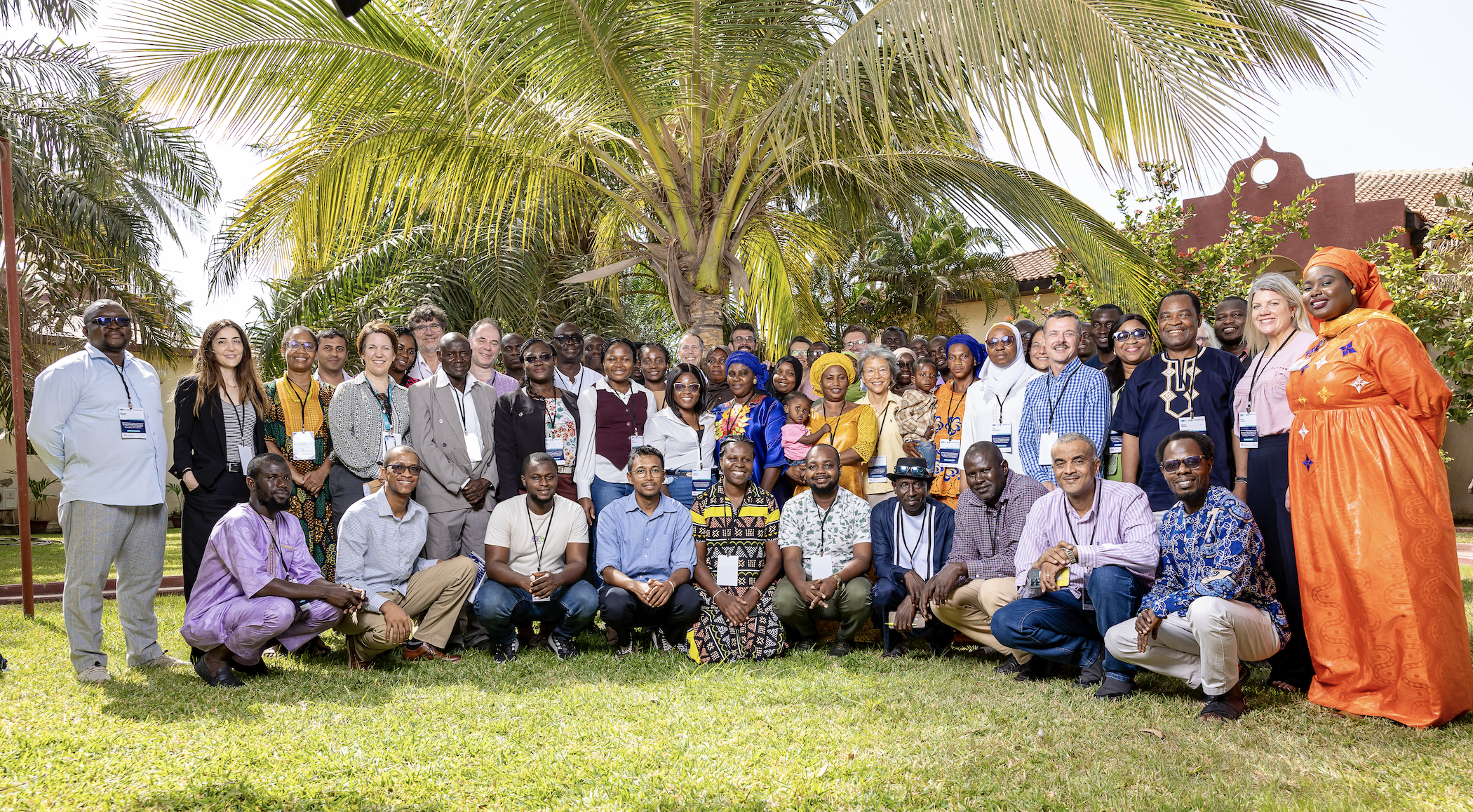
From 3-7 June 2024, the NIHR Global Health Research Group (NIHR GHRG) on Digital Diagnostics for African Health Systems convened an in-person workshop at Cape Point, The Gambia. The workshop aimed to gather insights from local stakeholders on the potential and application of portable digital diagnostics within Gambian health systems, and to enhance understanding and facilitate the integration of digital diagnostic tools to improve healthcare delivery in the region. This collaborative event was organised in partnership with the MRC Unit The Gambia at London School of Hygiene and Tropical Medicine (MRCG@LSHTM), a key partner in the consortium.
During the week, the members of the NIHR GHRG from partner countries and organizations in Africa – such as University of Ghana, minoHealth AI Lab(Ghana), University of Khartoum (Sudan), University of Nairobi and Masinde Muliro University of Science and Technology (Kenya), Imperial College London, Canterbury Christ Church University, The Institute of Cancer Research, and Malaria Consortium (UK) – had the opportunity to visit Gambian health centres and meet with collaborators at MRCG@LSHTM and other members of the consortium to discuss and develop key aspects of the project.
The workshop with stakeholders involved 20 representatives from the community, health sector, and government, including patients, nurses, doctors, laboratory staff, hospital directors and managers. Dr Dimbintsoa Rakotomalala Robinson, a Ph.D. Student at MRCG@LSHTM member of the NIHR GHRG, and Dr Jesus Rodriguez-Manzano, Senior Lecturer in the Section of Adult Infectious Disease at Imperial College, and co-founder and CSO of , led a live demonstration of “Dragonfly” digital diagnostics, the technology developed at Imperial College in partnership with ProtonDx for the NIHR GHRG.
The stakeholders discussed key aspects of the co-development of digital diagnostics with the research group, including health systems strengthening and policy for device integration, community engagement and involvement, user-interface design, and data integration. These discussions were facilitated by the NIHR GHRG’s ten PhD students, whose research forms the foundation of the project.
The event was featured on local news channels GRTS and QTV and participants engaged in interviews with the media.
Professor Aubrey Cunnington, Co-Lead of the NIHR GHRG and Head of Paediatric Infectious Disease Section, discussed the alarming gap in diagnostic access in Africa. Reports from the World Bank and other organizations indicate that more that than 50% of the population lacks access to diagnostics tests, and even when available, access to the essential diagnostics recommended by the WHO is limited. This lack of access hinders effective disease diagnosis and treatment, contributing to the ongoing public health challenges in the African regions.
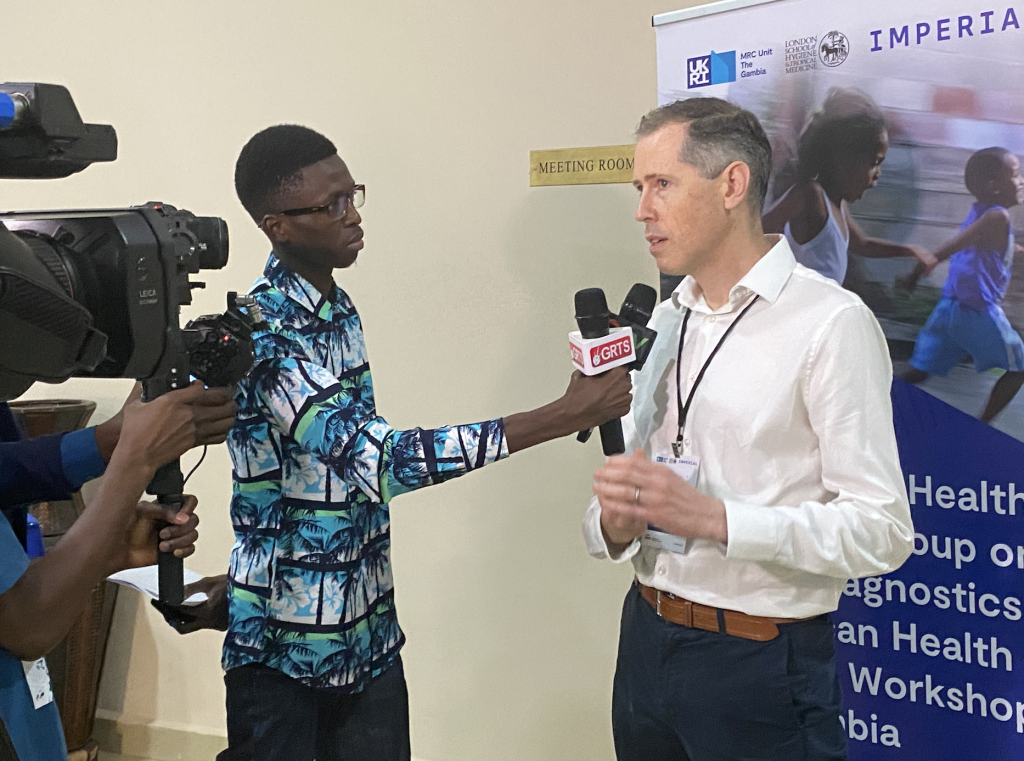
“If we don’t have diagnostics tests, we don’t know what is causing someone’s illness, and then we don’t know what’s the best treatment to give them, so it is almost like the nurses and doctors wearing a blindfold when they are trying to work out what’s wrong with their patients” Professor Aubrey Cunnington, Imperial College London.
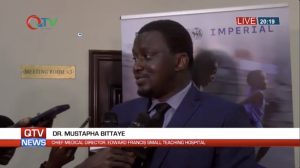
Dr Mustapha Bittaye, Chief Medical Director of Edward Francis Small Teaching Hospital in Banjul, stated that “the research that has been done is going to be very helpful for Africa as the technology developed by the NIHR GHRG can make difficult diagnoses very simple at the point-of-care”. Dr. Bittaye also remarked that the collaboration with the NIHR-funded researchers can enhance local capacity, and Gambian early career-researchers are encouraged to work with the NIHR Group to develop skills and become independent in the development and use of new diagnostics.
The stakeholders discussed key aspects of the co-development of digital diagnostics with the research group, including health systems strengthening and policy for device integration, community engagement and involvement, user-interface design, and data integration. These discussions were facilitated by the NIHR GHRG’s ten PhD students, whose research forms the foundation of the project.
The NIHR GHRG gathered valuable feedback on feasibility, usability, and potential improvements to inform the next stage of prototype evaluation and development, planned over the next two years of the project. The workshop was a success and an invaluable opportunity for of learning and sharing, against the beautiful backdrop of The Gambia.
Funding: The workshop was funded by the Research England International Science Partnership Fund (ISPF) 2023/2024 Global Development Hub ODA Project Accelerator through Imperial College London (G28643). The NIHR GHRG on Digital Diagnostics for African Health Systems is funded by the NIHR (134694) using UK aid from the UK Government to support global health research. The views expressed in [this publication] are those of the author(s) and not necessarily those of the NIHR or the UK government
—
About the NIHR GHRG on Digital Diagnostics for African Health Systems
Established in August 2022, the NIHR Global Health Research Group on Digital Diagnostics for African Health Systems aims to develop an evidence-base to support the development, implementation, and impact of digital diagnostics technology in African health systems, and training a cohort of African Digital Diagnostics Fellows who will evaluate the impact of and develop further digital diagnostics technology.
The NIHR GHRG brings together a large international and interdisciplinary group of researchers and experts, from 16 different organizations based in 8 countries, between Africa, the UK and Netherlands, and it is led by Professor Aubrey Cunnington, Head of Section and Professor of Paediatric Infectious Disease at Imperial College London, and Professor Halidou Tinto, Regional Director of the Clinical Research Unit of Nanoro (CRUN) at the Institut de Recherche en Sciences de la Santé (IRSS) in Burkina Faso.
About the Digital Diagnostic Technologies
As part of the NIHR GHRG programme, Dr Jesus Rodriguez-Manzano and Professor Pantelis Georgiou’s Imperial College and ProtonDx teams, are working on the development of portable, rapid diagnostic solutions, including Dragonfly and Lacewing, for the detection of asymptomatic malaria infections and associated plasmodium species. These solutions provide high level analytical performance equivalent to Nucleic Acid Amplification Tests (NAATS), in a simple to use, cloud connected solution that can be performed without skilled staff, laboratory infrastructure or cold chain requirements.
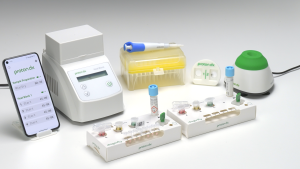
Credits: ProtonDX Team, partner of the NIHR GHRG
Dragonfly
Dragonfly, led by Dr Rodriguez-Manzano, incorporates power-free, magnetic nanoparticle-based nucleic acid purification and lyophilized colorimetric Loop Mediated Isothermal Amplification (RT-LAMP) technology, providing sample-to-result outcomes in less than 30 minutes. In contrast to conventional molecular diagnostics, Dragonfly is easy to perform, requiring only a small battery-powered, portable heat block. The operational and analytical performance of Dragonfly for malaria detection in fingerprick blood has been recently evaluated as part of two studies involving over 600 patients in collaboration with teams in The Gambia and Burkina Faso.
Lacewing
Led by Professor Pantelis Georgiou and Dr Nicolas Moser, Lacewing is an automated, portable, state-of-the-art Lab-on-Chip electrochemical sensing technology, which integrates LAMP based molecular approaches and cloud-based surveillance. The platform uniquely allows for high analytical performance and high speed without the need for bulky equipment and centralised laboratory infrastructure. The Lacewing technology is envisioned to be targeted to untrained users, and compatible with remote areas of low-resource settings. Lacewing has already been demonstrated for a range of targets including SARS-CoV2, dengue, colistin resistance and transcriptomic signatures to detect bacterial and viral infections, and it has now been adapted for malaria detection.
Credits: The event was organized by Francesca Piffer, Project Manager at Imperial College London of the NIHR Global Health Research Group on Digital Diagnostics for African Health Systems, in collaboration with MRCG@LSYTM Administration, Communication and Finance teams–including Lucene Ahadzie, Isatou Foon, Amat Cham, Dr Shiloe Marie Mokay-Rinke, Alhassan Drammeh, and Mohammed Jobe– and with Dr Annette Erhart, MRCG@LSHTM Malaria Coordinator, and Professor Umberto D’Alessandro, Director of the MRC Unit The Gambia.
The report was written by Francesca Piffer, Project Manager of the NIHR GHRG.
